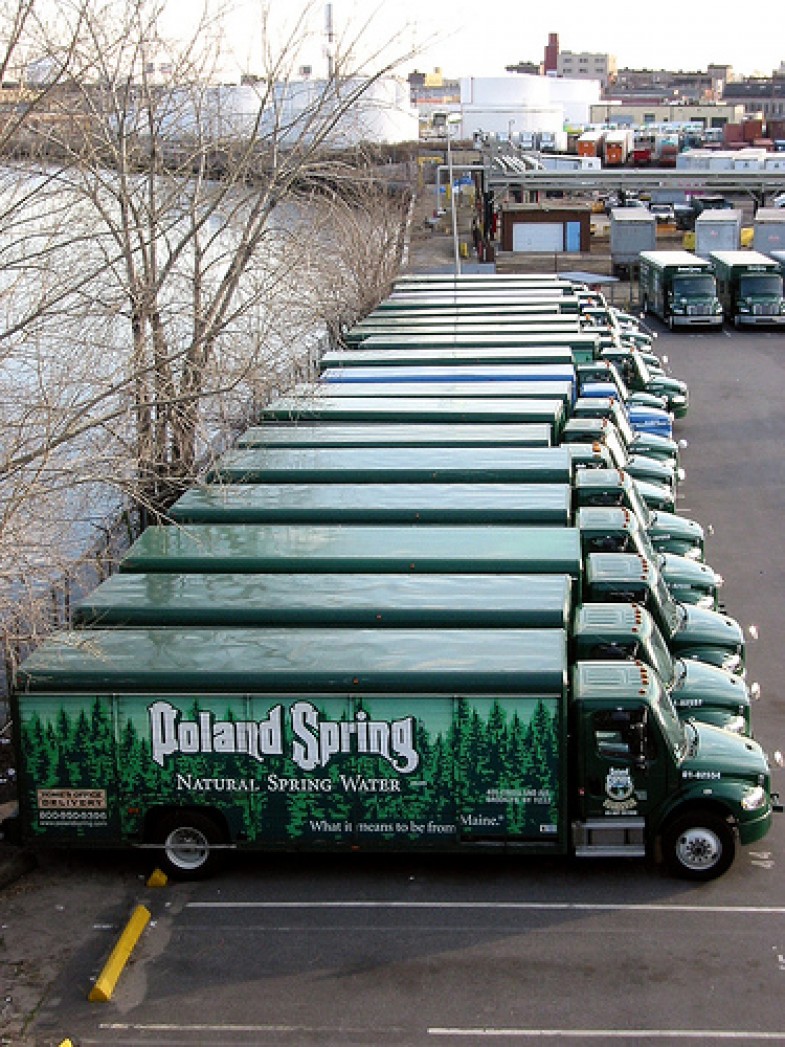Water activists in Maine won a big victory last week when the Kennebunk-Kennebunkport-Wells Water District tabled indefinitely a proposal that would have let Poland Spring extract between 250,000 and 500,000 gallons of water a day from Wells, Maine. Poland Spring’s parent company, Nestle, already extracts water from eight wells in Maine, and is now seeking to take water from Rangeley, Maine.
The victory was organized by Defending Water in Maine and other local organizations, with help from Food and Water Watch of Washington, D.C. “They’re pounding on the door of one community after another,” said Emily Posner with the Defending Water in Maine campaign. “We’re designating water as a part of the Commons, where everyone has the right to use water and no one has the right to sell it for profit. Maine’s economic development should be controlled by the residents of this great state, not by Nestle.”
!/sites/default/files/imagecache/large/1262746160_3605597655.jpg!
Photo by Lance and Erin, via Flickr, licensed under a Creative Commons BY-NC-ND license.
Wenonah Hauter, executive director of Food and Water Watch, was pleased by the water district’s decision: “Water should be safe, clean and affordable for all, not a commodity to line corporate pockets or to be taken and peddled as a luxury item. The people of southern Maine have spoken and what they want is control of their own water, not indentured servitude to the corporate water barons.”
She added, “Economically vulnerable towns that may be seduced by the lure of new jobs from new extraction sites need to know that these so-called promises are nothing but lies concocted by Nestle to dupe them into handing over their water.”
A recent analysis by Food & Water Watch, The Unbottled Truth About Bottled Water Jobs, finds that:
- In 2006, the nation’s 628 water-bottling plants employed fewer than 15,000 people
- A typical bottled water plant employs 24 workers, between two and ten of which are local residents
- The average salary for a bottled water worker in 2006 was $41,236, almost $10,000 a year less than the average manufacturing job
- In 2006, bottled water manufacturing had one of the highest rates of workplace injury and illness, with one out of every 11 workers maimed or infirm—a rate 50 percent higher than the broader manufacturing and construction industry.


